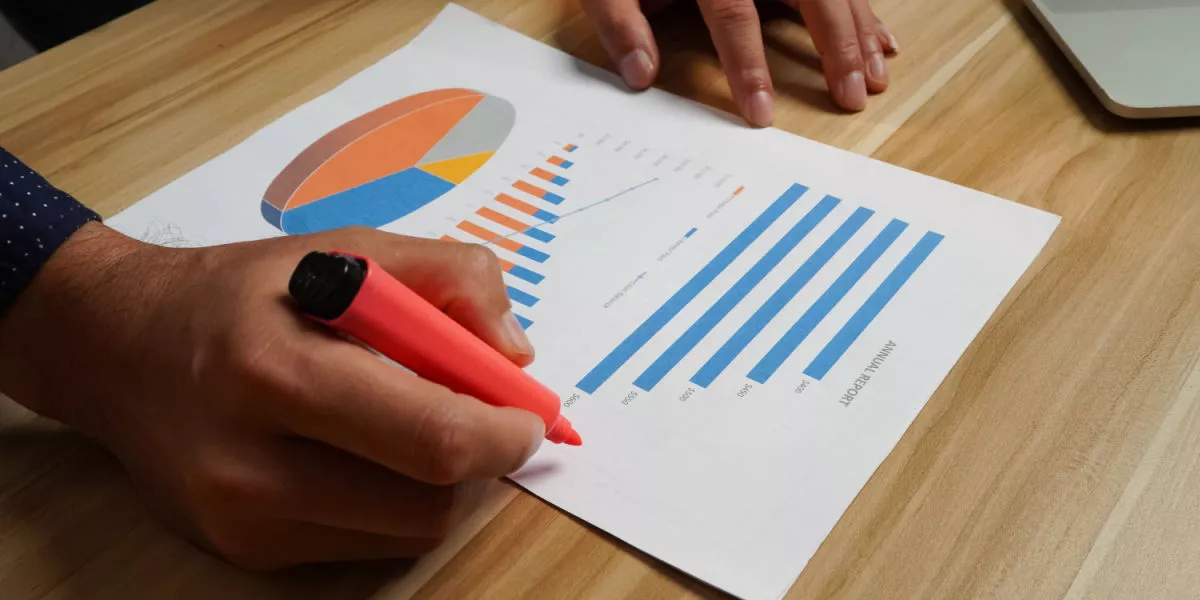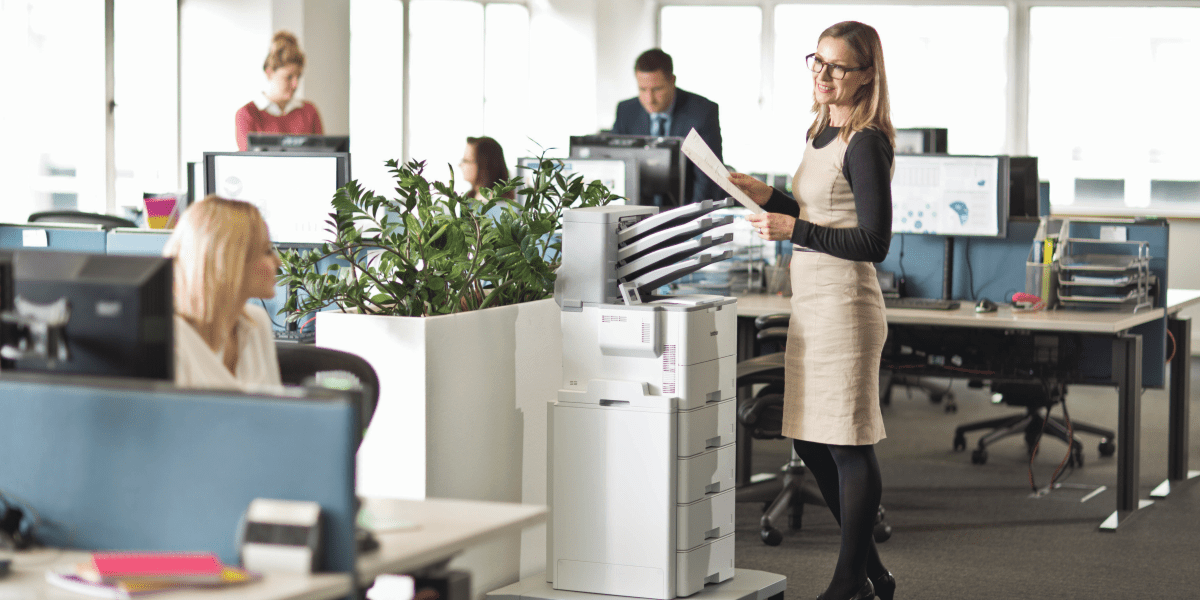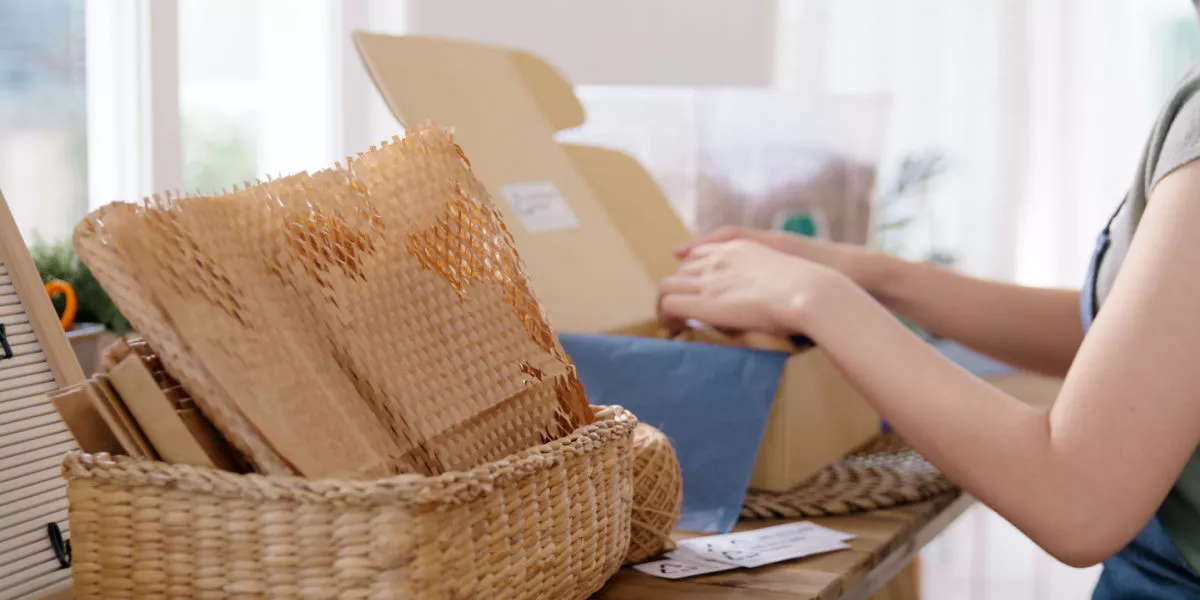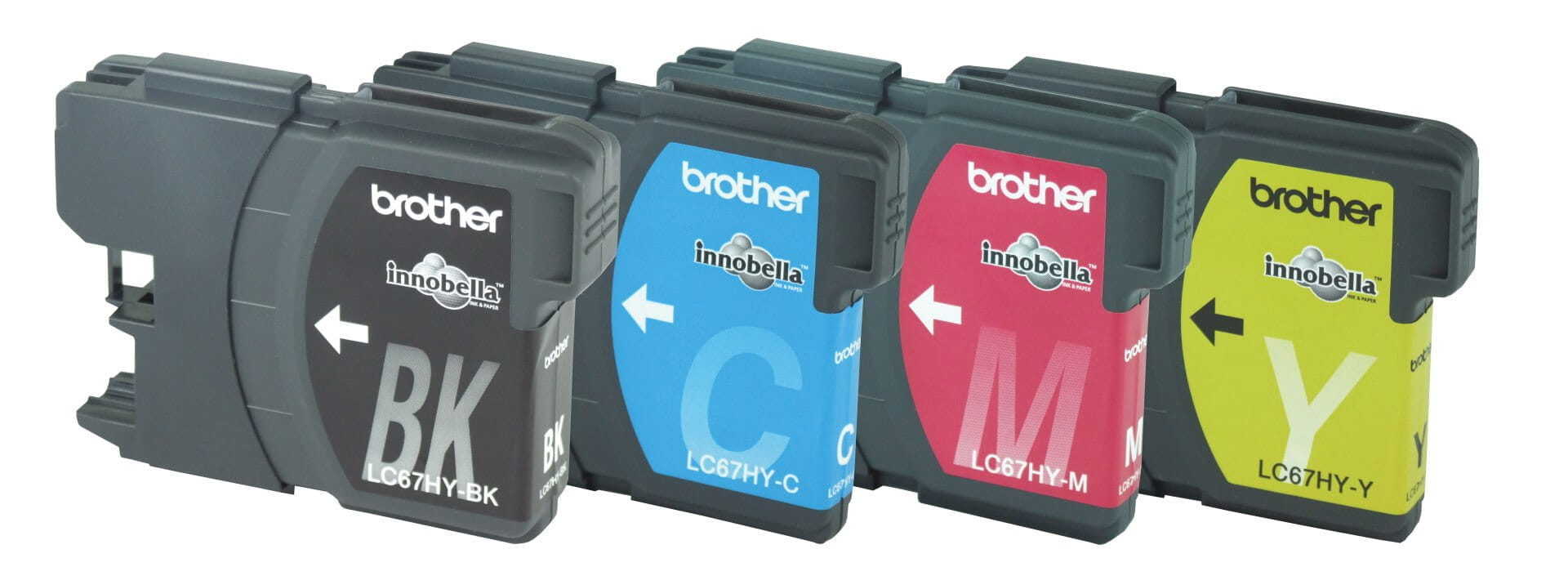How to make your small business more sustainable

As consumers become increasingly eco-conscious, small business owners are realising the significance of implementing sustainable practices. With environmental regulations and the rising cost of energy to consider, adopting eco-friendly strategies is fast becoming a no-brainer.
Last year, a survey from Mastercard found 76% of Australian business leaders identified sustainability as being critical for success in their industry.
But, there’s no one-size-fits-all approach here. ‘Sustainability’ means different things to different businesses and different industries, and what’s feasible for one business owner may be challenging for another.
While some businesses can go paperless, others will rely on printing in their operations. The latter, however, could switch to recycled paper, recycle their printer cartridges, or focus on energy consumption and procuring from other sustainable businesses.
Here, we’ll explore why sustainability matters for small businesses, share some tips on how to make your business more sustainable, and take a look at what sustainability can look like in different industries.
In most cases, there will be at least one or two things you can do to build green thinking into your operations.
The business case for sustainability
As argued by Xero, several benefits can come from building sustainability into your small business operations. Ultimately, they all lead to the same thing – it’s just good business sense.
Consumer demand
Increasingly, consumers expect businesses to behave responsibly in terms of their environmental impact. And they’re voting with their wallets.
According to AdNews, one survey of Australian consumers found that 73% expect all businesses – regardless of size or sector – to be doing everything they can to be environmentally friendly. That’s up from 52% in 2019.
Further, 39% of consumers said they will stop using a business’s products or services if they don’t feel it’s acting sustainably. For those under 30, that figure is even higher, at 47%.
Improved reputation
Operating sustainably, and being public about it, can give your reputation a boost as mentioned by Business Queensland, helping you attract new customers and retain the ones you have.
This could also give your business the edge when seeking procurement or partnership opportunities, and help you attract – and retain – the best staff.
A case for compliance
Sustainability in business is also a growing focus among local councils and governments, and if there aren’t already guidelines and regulations in place for your industry, there may well be soon.
It’s worth getting ahead of the game and implementing well-thought-out, sustainable processes now, so you don’t find yourself scrambling to catch up later.
Sustainability often means profitability
All those new and happy customers can only mean more revenue and more growth. But that’s not where the financial benefits of small business sustainability end.
Conserving energy means fewer emissions, but it also means lower utility bills. And more recycling can mean less money spent on waste removal.
Attracting the best talent means you’ll be operating like a well-oiled machine, and a willingness to embrace change opens the door to a more innovative environment, which can lead to more efficiencies throughout the business.
Depending on where you’re based, your business might even become eligible for government grants or subsidies such as those outlined by the Australian Government’s Department of Climate Change, Energy, the Environment and Water.
Greenwashing: A word of warning
As defined by Lawpath, greenwashing is when a business makes environmental or sustainability claims that are either untrue or undermined by other less sustainable practices.
At worst, greenwashing is against the law – Australian Consumer Law prohibits businesses from making ‘false or misleading representations’.
At best, it’s unethical, with businesses seeking to reap the rewards of being sustainable without putting in the work.
And when exposed for greenwashing, a business can expect the exact opposite outcomes – damaged reputation, fractured relationships, and a loss of customers.
Needless to say, it’s best to only make sustainability claims you can back up. Consumers are savvy and won’t be fooled for long.
10 ways for small businesses to be more sustainable
It’s important to consider sustainability in both the consumer-facing parts of your business and the back office, as well as thinking about your logistics, partners, and procurement.
These ten strategies for improving sustainability can help you get started, but bear in mind you don’t have to make all these changes at once. Think about what you have the time and resources to implement now and start there.
1. Build sustainability into your mission or values
If it’s not part of your company’s mission statement or values already, building your sustainability goals can help you actually achieve them.
Write a short declaration clarifying your priorities and explain why sustainability is important to you and your business, including specific goals, how you plan to reach them, and how you will measure success.
Formalising your commitment in writing will help keep you on track and accountable in your sustainability journey. Gradually, you may find that considering the environmental impact of every decision becomes second nature.
2. Source mindfully
Consider sustainability when making purchases for your business.
That could mean using environmentally friendly materials to manufacture your products or working with vendors that are committed to sustainability.
You could use recyclable, renewable or biodegradable materials to distribute your products – packaging, cutlery or takeaway cups, for example.
Or, businesses that use storage facilities might choose a space that consciously conserves water or uses solar panels.
If you’re sourcing physical goods, you could look for local options, thereby cutting down on shipping emissions. Even consider the environmental impact of the dish soap in your office kitchen or the cleaning supplies used around the office.
These small things quickly add up and start to move the needle.
Setting up an official policy for green procurement can help ensure you take sustainability into account at the beginning of any new relationship.
3. Embrace new printing and scanning technology
When it comes to sustainable printing practices, resource conservation should be a top priority for any small business. Double-sided printing, also known as duplex printing, is a simple yet highly effective strategy that can help businesses conserve paper.
Printing on both sides of a piece of paper not only cuts paper usage in half, but also reduces energy consumption. With fewer print runs required, businesses can reduce the power they need to operate their printers and contribute to a more sustainable future.
In addition to double-sided printing, businesses can embrace a paperless digital document management system. This transition from traditional pen-and-paper recordkeeping can save companies significant amounts of paper waste, reducing their environmental footprint.
Brother offers numerous scanning devices, including high-speed scanners and Multi-Function Centres (MFCs), that can help businesses achieve a seamless transition to paperless. These devices enable more efficient and sustainable document management, resulting in cost and time savings.
4. Be stationary-smart
Try to reuse things like folders, binders or even envelopes wherever possible.
If appropriate, send emails instead of printing office memos, and if printing is unavoidable, use smaller font and margins and print on both sides of the paper to significantly reduce waste.
You can also recycle printer and toner cartridges, instead of throwing them out. Brother is part of the Cartridges 4 Planet Ark program, meaning its cartridges can be donated for recycling and turned into new stationery, benches or even road surfaces, ensuring nothing ends up in landfill.
Brother cartridges can be dropped off at specified locations all over the country, or eligible businesses can apply to get a collection box in their workplace.
5. Encourage hybrid work
Adopting a hybrid work approach may be a smart business move that can help cut down on electricity usage, resulting in lower costs for critical overheads such as energy and water bills. A hybrid working model also means fewer employees driving to work and even fewer disposable coffee cups in the bin.
Similarly, before jetting off for business meetings, consider whether a video conference could achieve the same result, without the emissions.
6. Encourage recycling and consider refurbished products
Simply placing dedicated recycling bins around the office (and getting them emptied regularly) can encourage staff to be more mindful about how they dispose of their personal waste. Include signs to show people what can and can’t be recycled, as well as an email memo to keep team members informed.
You can even organise staff ‘swap’ days, encouraging people to swap anything from clothes to books to electronics, instead of throwing items away, or provide a way for staff to responsibly dispose of personal electronics.
When it comes to technology, consider whether up-cycled or refurbished products could be suitable. For example, Brother International Australia has launched a range of high-quality, refurbished printers – products that have been repaired and returned to near-new condition, to reduce electronic waste.
Similarly, if you’re upgrading your tech, think about dropping off your old models to a recycling scheme, to be refurbished or repurposed. You could even consider re-selling or donating your hardware, instead of throwing it out.
7. Consider energy efficiency
You can reduce your carbon footprint (and your costs) by improving energy efficiency in your business premises.
That could mean insulating your buildings to minimise loss of heat or choosing energy-efficient light bulbs and appliances. According to Applied Energy Saving, turning down the heat just one degree can also reduce your energy costs by up to 10%.
Businesses that use vehicles could also consider investing in a fuel-efficient fleet, or even hybrid or electric vehicles.
8. Save water
Reducing water usage is another way to save natural resources and reduce your bills.
That could mean installing a rainwater tank, low-flow toilets and taps, or sensors to ensure taps aren’t left running. However, it could also mean simply fixing that leaky faucet – every drop counts.
9. Offset with donations
There may be areas where it’s not practical for your business to be as eco-friendly as you would like – perhaps there’s always going to be a need for regular air travel, for example.
If this is the case, consider offsetting your carbon emissions through a specialist organisation, or donating to environmental charities.
10. Research industry support
Depending on the industry you’re operating in, you may have an industry body that offers support in reducing environmental impact.
The Australian Retail Association, for example, has developed a training program specifically designed to help retailers transition to net-zero emissions.
How to get started on your small business sustainability journey
When considering sustainability in your small business, it’s one thing to know where you want to get to, and another to know where to start.
If you’re feeling overwhelmed, these steps can help you get your priorities straight, and start moving.
Step 1. Evaluate
By evaluating or auditing your current environmental impact, you can get a sense of where you’re doing ok, and where there’s room for improvement. This will help you focus your efforts where they’re most needed, where you can have quick wins and what areas you’ll need to implement longer-term strategies to work towards.
Step 2. Make a plan
Create a formal plan, detailing your specific goals, timelines and plans for improvement. It should also include how you’re going to measure and document your progress.
Not only will this give you a clear roadmap to work to, the simple act of writing something down will help keep you accountable.
If you’re feeling especially brave, sharing your goals with your customers and the public will up the stakes, further encouraging you and your team to put in the effort. Done well, this could ultimately be great for your reputation.
Step 3. Start small
When it comes to improving sustainability, there’s a lot you can do. But that doesn’t mean you have to do everything right away. Weigh up what’s most important to you with what can be done quickly and relatively easily and start there.
Remember, no organisation gets everything right 100% of the time, and small steps in the right direction are better than no movement at all.
Step 4. Consider certification
Independent sustainable business certifications can offer a clear indication as to whether you’re on the right track. Even if you’re not ready to apply, look into what they require, to understand what’s required and where you’re headed.
If you decide to apply for certification when you’re ready, consider which is best suited to your business, and pick one that’s legitimate and relatively well-known. Again, when done right, the reputational benefits can be significant.
Organisations and industries making a positive change
Sustainable operations can look different for businesses in different industries, and incorporating environmentally-friendly practices will be easier for some than others.
But for most organisations, there will be at least one or two things you can do to improve your green credentials. Here are some examples of Australian small businesses in various sectors that are paving the way:
Education
Based in Queensland, Sustainable Schools Network (SSN) works to connect schools, sharing knowledge and skills for operating sustainably and providing sustainability education for kids and communities.
With the goal to empower teachers and students alike, the organisation runs annual events, publishes its own journal, and shares resources to help foster sustainable education and embed green values into the curriculum.
Food and Hospitality
In a picturesque cottage in Newrybar, a short drive from Byron Bay, Harvest is a restaurant serving up a seasonal menu showcasing locally sourced ingredients, including from its on-site bakery, deli and market garden. But reducing food miles is just the beginning of its sustainability efforts.
The kitchens strive for zero waste, turning scraps into sauces, vinegars or syrups – or compost for the gardens; all paper on site is 100% recycled; and used cooking oil is collected and recycled to make biodiesel.
Even the wine list features drops from small, local producers that themselves operate as sustainably as possible.
Healthcare
Kangarama is an Aussie business selling scrubs for healthcare workers, designed to be antiviral and antibacterial, and made from recycled water bottles and polyester.
As well as being practical, products are made using environmentally-friendly dyes, and manufacturers have been chosen for their ethical credentials.
The business is also making a concerted effort not to become a part of the ‘fast-fashion’ environmental crisis, with scrubs extensively tested and built to last.
Transport and Logistics
Australia-grown courier business Sendle is focused on providing carbon-neutral shipping services, designed to be affordable and efficient for small businesses.
For each parcel delivered, Sendle contributes to sustainability projects that have included preserving forests in Tasmania, Mexico and Peru.
Each year, Sendle’s community of business owners are given the chance to vote on the projects that will offset its carbon emissions for the next 12 months.
Professional Services
Reground is a social enterprise putting a very Melbourne spin on waste management. The team collects coffee grounds from cafes and chaff from roasters and turns them into fertiliser for community garden projects and home gardeners.
The business also collects soft plastics for reuse or recycling and provides consultation on how to minimise waste for businesses, commercial sites and councils.
For Reground, the focus is not only on reducing the amount of waste that ends up in landfill but creating circular solutions and keeping waste management local.
Retail
Who Gives A Crap is one of Australia’s biggest success stories in the social impact space, having inexplicably made toilet paper cool.
The certified B-Corp offers recycled or bamboo toilet paper, all delivered to customers’ doors through carbon-neutral shipping partners and in completely plastic-free packaging.
It also donates 50% of its profits to projects improving access to clean water and sanitation all over the world, with donations totalling more than $11 million to date.
The final word on sustainability
Between consumer demand, compliance and regulations, and the changing climate, sustainability in business is no longer optional, or a nice-to-have. It’s essential to small business success.
While some solutions might require investment, there are small steps that any business can take to start moving the needle. And once you’re up and running, the reputational and cost-saving benefits can be significant.
If your business relies heavily on printing, Brother can provide access to the Cartridges 4 Planet Ark recycling program. The program recycles used printer ink and toner cartridges, and is environmentally certified, guaranteeing zero waste going to landfill.
Learn more about properly disposing of your cartridges with Brother here. You can find more tips on adopting sustainable printing practices in your business in our free Sustainability eBook, available for download here.

Resource Library
Be the first to receive exclusive offers and the latest news on our products and services directly in your inbox










